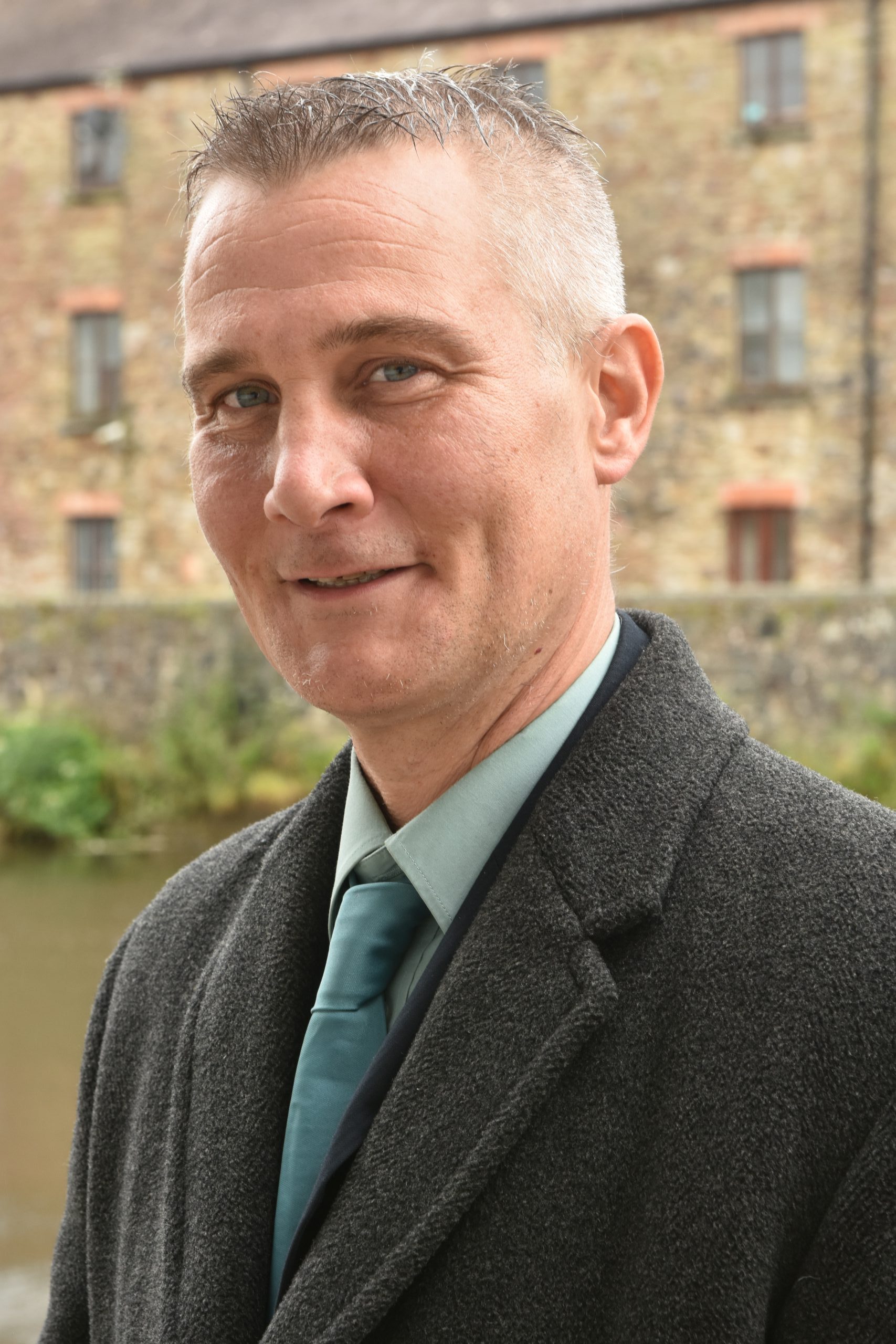Politics
Corporate greed blamed for rising veterinary costs

VETERINARY care is unaffordable for many pet owners in Wales due to “ridiculous” price increases fuelled by corporate greed, a committee heard.
Caroline Allen, chief veterinary officer at RSPCA Cymru, said a survey found more than half of Welsh pet owners were worried about being able to afford vet bills.
She told the Senedd’s petitions committee it is a challenging time for the animal rescue sector due to inflation and the wider cost-of-living crisis.
Dr Allen, a practising vet for 20 years before joining the RSPCA, said 78% of pet owners reported an increase in bills and 90% were worried about feeding their pets.
She explained that when she qualified many practices were owned by vets and embedded within the community, but most have since been bought by big businesses.
Calling for reform of the “outdated” Veterinary Surgeons Act 1966, Dr Allen said vets can be held to account under the law but corporate entities cannot.
She said the RSPCA has had to withdraw direct services for the public to focus on its core role of helping animals suffering neglect and cruelty.
Carlie Power, representing the Cats Matter charity, described price increases as ridiculous, hitting out at a “continuous greedy rise in profits”.
Giving evidence to an inquiry on the corporate takeover of the veterinary profession, Ms Power told MSs she had to pay £62 for three days’ worth of eyedrops for her cat.
She said it cost a total of £52 to have one of her cats, Dolly, neutered seven years ago but she recently took another cat, Nix, and was billed £159 – an increase of more than 200%.
Ms Power, who has five cats, warned that responsible owners cannot afford to get their pets neutered, which piles yet more pressure on shelters.
She raised a Daily Mirror article on veterinary practices in Turkey offering cut-price treatment due to rising costs in the UK. Dr Allen warned this could lead to “hideous welfare problems”.
Peredur Owen Griffiths, who has two cats, called Treacle and Marmalade, and once wanted to be a vet, asked witnesses how the profession has changed over the past 25 years.
Sue Paterson, president of the Royal College of Veterinary Surgeons, told the Plaid Cymru politician that practice structure, facilities, workforce and education are the four big changes.
She said 41% of Wales’ 351 practices are corporatised, with around 150 owned by the “big seven”, which is lower than elsewhere in the UK.
Dr Paterson warned the Royal College cannot regulate veterinary practices, saying: “We can only regulate veterinary professionals – that is a huge hole in the regulatory process.”
Julia Mewes, who set up The Mewes Vets as an independent practice 28 years ago, raised concerns about other vets working on commission, saying she does not set financial targets.
She warned this has created anxiety, an unpleasant atmosphere and competition between colleagues, rewarding the best at selling rather than the best at caring.
Jack Sargeant, the Labour committee chair, who has a cavalier king Charles spaniel, named Coco, highlighted the Competition and Markets Authority’s concerns about the sector.
Peter Fox, the Tory MS for Monmouth, who has been a farmer for 30 years, cautioned against demonising the private sector, pointing to positive advances in treatment.
The short inquiry was prompted by a 308-name petition submitted by Linda Joyce-Jones, a campaigner, who warned that corporatisation has had devastating consequences.
Dr Joyce-Jones explained that a change of law in 1999 allowed practices to be owned by not only qualified veterinary surgeons, paving the way for big business.
Describing the profession as barely recognisable now, she wrote: “In many parts of Wales, it is virtually impossible to find an independently run veterinary practice.
Dr Joyce-Jones said corporations also own laboratories, drug companies, and pet crematoriums, as well as shares in many pet food businesses.
She warned: “Such a monopoly makes the few remaining independently run practices’ presence virtually untenable.”
News
Businessman enters political arena amid ambitious Reform Party campaign

STUART James Marchant, a well-known local businessman, has announced his candidacy with the Reform Party, marking his debut in the political landscape. He standing in Mid and South Pembrokeshire.
Born in Croydon in January 1981, Marchant spent his formative years in Orpington, Kent. He attended Darrick Wood Secondary School and Orpington College, where he first demonstrated his work ethic with a part-time job at Tesco.
Following his education, Marchant took up a retail position at PC World, before making a significant career change in 2001 by joining the private parking sector. His dedication quickly saw him rise through the ranks. By 2005, an opportunity to work in Wales beckoned, allowing him to reconnect with his maternal roots in Carmarthen.
He spent several years in Swansea before returning to the South East in 2008 to manage a substantial portfolio of car parks.
By 2020, Marchant had amassed a wealth of experience across various roles, demonstrating his ability to adapt and lead within different teams. Currently, he operates a small business near Carmarthen, embedding himself further within the local community.
An avid traveller, Marchant has explored numerous global destinations, fostering a deep cultural competence. Locally, he is known to indulge in occasional hockey games and has recently begun learning to para-glide.
Marchant’s political journey began in 2009 with his membership in the Conservative Party. However, earlier this year, he made a significant shift to the Reform Party. As a staunch supporter of Brexit, he believes South West Wales stands to gain substantially from this historic decision. Marchant is convinced that the Reform Party is best positioned to deliver these benefits.
The Reform Party UK is aiming for a strong performance in Wales during the upcoming general election on July 4th. Here are the key points regarding their prospects in Wales:
Reform targeting all 32 Welsh seats
The Reform Party has declared its intention to field candidates in all 32 parliamentary seats in Wales, with a particular focus on the north-east, border areas with England, the south Wales valleys, and Pembrokeshire. This ambitious “reverse Cymru” strategy aims to secure a significant presence across various regions of Wales.
While the Reform Party will criticize the Conservative government, they are also targeting Labour’s traditional strongholds in Wales. Nigel Farage believes Reform can take seats from Labour in working-class communities like the Welsh valleys, which voted to leave the EU in 2016. The party plans to highlight the “disaster of the devolved Labour government” in these “left-behind” areas.
Both the Liberal Democrats and Reform UK have expressed a desire to see a Conservative party “wipeout” in Wales, aiming to take Tory seats. The Lib Dems’ Jane Dodds stated that “kicking the Tories out of Wales” would be a good election night for her party.
While Reform UK’s vote share is still within the margin of error, recent polls suggest they are neck and neck with or even slightly ahead of the Conservatives. This rise poses a significant threat to the Tories, as Reform could potentially force a merger with the Conservatives, as Farage has suggested.
In summary, the Reform Party UK is mounting an ambitious campaign in Wales, targeting Labour’s heartlands as well as challenging the Conservatives. Their performance could significantly impact the political landscape in Wales and potentially lead to a Tory wipeout in the region.
With his extensive professional background and commitment to the community, Marchant aims to bring a fresh perspective to the political scene, promising to champion the interests of South West Wales.
_____________
The following people have been nominated for election as a member of the UK Parliament for Mid and South Pembrokeshire constituency:
Hanna Andersen (Women’s Equality Party);
Alistair Cameron (Welsh Liberal Democrats);
Stephen Crabb (Welsh Conservative);
Stuart Marchant (Reform UK);
James Purchase (Green Party);
Vusi Siphika, (Independent);
Cris Tomos (Plaid Cymru);
Henry Tufnell (Welsh Labour).
Politics
Senedd committee votes against calls to keep newspaper council tax notice rule

A SENEDD committee voted against calls to maintain a legal requirement for council tax notices to be published in local newspapers.
Peter Fox tabled an amendment to the local government finance bill to ensure the public notices continue to be printed in newspapers.
But a vote in the local government committee was tied 3-3, with John Griffiths, the chair, required by Senedd rules to use his casting vote against the amendment.
Mr Fox, the Conservative MS for Monmouth, said online-only notices are not always accessible to everyone and some people rely on newspapers.
He argued keeping the requirement would help increase accountability and transparency.
Mr Fox, who led Monmouthshire council for a decade, said: “We shouldn’t be stopping people having the right to access information in the way they need it.”
He told the committee: “It’s almost abdicating responsibility as a government to make sure the people of Wales, all people of Wales, get access to information….
“I think it’s a retrograde step that wasn’t needed. I think the government should have more responsibility to the wider population of Wales.”
James Evans, a fellow Tory MS, who represents Brecon and Radnorshire, warned notices going online-only risks undermining the viability of some local newspapers.
“Not everybody gets their news online – I think we should respect that,” he said, adding that some people put their trust in the written press due to misinformation spread online.
Plaid Cymru’s Luke Fletcher sympathised with the Welsh Government’s intention but backed the Tory amendment due to the potential impact on the newspaper industry.
Mr Fletcher said: “A number of news outlets have contacted us as members to say that quite simply they wouldn’t have been profitable if it wasn’t for these advertising notices.
“As the news landscape in Wales is already pretty thin on the ground, I think that could pose a problem in the future if we see some of these news outlets closed as a result of this.”
Carolyn Thomas, the Labour MS for North Wales, raised concerns about the accessibility of printed public notices. “Even with my glasses on, I couldn’t read them,” she said.
She supported the Welsh Government’s position that councils should have the choice, with her Labour colleague Joyce Watson also voting against the amendment on June 13.
Rebecca Evans, who is in charge of the bill, said the requirement was put in place in 1992 when communicating with citizens was commonly carried out through newspaper notices.
“But now, 30 years on, this is widely considered to be an inflexible approach to providing council tax information,” she said. “It’s been left behind by technological advances.”
Wales’ finance secretary emphasised that all taxpayers receive information about council tax as part of their annual bill, whether they choose to receive that electronically or in hard copy.
Stressing the importance of value for money, Ms Evans added: “Should local authorities wish to continue to use local papers, the bill does not prevent them from doing so at all.”
She sought to assure members that the change has not been designed with any broader intention to pave the way for removing other types of public notices.
The bill now moves to stage three of the legislative process, with the Conservatives expected to re-introduce the amendment for a vote of the whole Senedd.
Health
Disabled people facing ‘David and Goliath’ battle for support

DISABLED people too often face a David and Goliath-style battle for support under Wales’ health and social care system, a committee heard.
The Senedd health committee took evidence about the Welsh Government’s plans to reform direct payments which allow disabled people to arrange their own care and support.
Nathan Lee Davies, an author, artist, and activist from Wrexham, told the committee he has had a largely negative experience of direct payments with his local council.
“The local authority has recently clawed back £33,000 of my direct payments,” he said, adding that he finds it difficult to spend his money in the way he would like.
Mr Davies, who has Friedrich’s ataxia, which affects his co-ordination, balance and speech, was saving up for a rainy day as well as a holiday to Florida – his first break in 14 years.
But Wrexham Council demanded the return of “surplus” funds, leading him to launch a successful gofundme campaign to raise money for his dream trip.
Chris Hall, a volunteer who supports Nathan, said the campaigner gets no opportunity to co-produce his “defective, appallingly written” care and support plan.
He said Nathan faces a continual David-and-Goliath battle with a “dysfunctional” direct payments department, warning: “They’re not interested in what Nathan wants.”
He drew a parallel with the victims of scandals around the post office, infected blood, and the Hillsborough disaster – who found themselves isolated and up against big organisations.
Mr Hall told the committee disabled people are too often walking a financial tightrope unable to save money for a potentially catastrophic rainy day.
He stressed that disabled people deserve the opportunity to live a fulfilled life, not just get by.
If passed, the health and social care bill will introduce a right to direct payments via the Continuing NHS Healthcare support service.
Mr Hall warned that disabled people who opt for direct payments for Continuing NHS Healthcare may not be able to go back to receiving support from the council.
“I think Nathan and many people who are disabled say ‘it’s better the devil I know’,” he said.
“Rather than jumping into a swimming pool and saying ‘I’ll see if I can swim’ they’re saying ‘I’ll stay on the edge of the pool – at least I’m not drowning’.”
Shahd Zorob, a fellow campaigner, from Carmarthenshire, warned about more pressure being piled on an already under-strain health service.
Ms Zorob, who has cerebral palsy, also raised concerns about a shortage of personal assistants, saying the pay is simply not good enough.
Mr Hall agreed that there is too often a “revolving door” in terms of support workers, with Mr Davies finding it difficult to recruit and retain staff.
“He’s effectively self-employed and managing ten staff,” he told the meeting on June 12.
Cecilia Kenny, a disability rights campaigner, who is also from Wrexham, called for clearer information and communication around the plans for direct payments via the NHS.
Samantha Williams, policy manager at Learning Disability Wales, supported the reform’s aims but raised concerns about implementation and the administrative burden on families.
Jake Smith, policy officer at Carers Wales, said the bill would potentially increase choice and control for unpaid carers and their loved ones.
Kat Watkins, project development officer at Disability Wales, who recently moved to Continuing NHS Healthcare herself, also welcomed the proposed changes.
She said: “We’ve got a two-tier war between disabled people and people with long-term health conditions who either can have the control over their care or can’t.
“And that is not something that we want in Wales at all.”
Ms Watkins added: “It’s so important for human rights …they may have complex health needs but they still have rights as human beings to have an independent life.”
-

 News3 days ago
News3 days agoTwo people killed, and two injured in A477 traffic collision
-

 News2 days ago
News2 days agoAppeal for witnesses after two killed in A477 collision
-

 News5 days ago
News5 days agoYouth rescued after 40-metre jump off bridge at Neyland Marina
-

 Crime6 hours ago
Crime6 hours agoPembroke Dock residents ‘terrified’ as chaos and violence erupts in streets
-

 Crime5 days ago
Crime5 days agoPembrokeshire postman admits driving after taking cocaine
-

 News5 days ago
News5 days agoFire crews tackle large garage blaze in Milford Haven
-

 Crime4 days ago
Crime4 days agoDock woman sentenced for jumping on police officer
-

 Community23 hours ago
Community23 hours agoTwo Pembrokeshire residents honoured in King’s Birthday List























